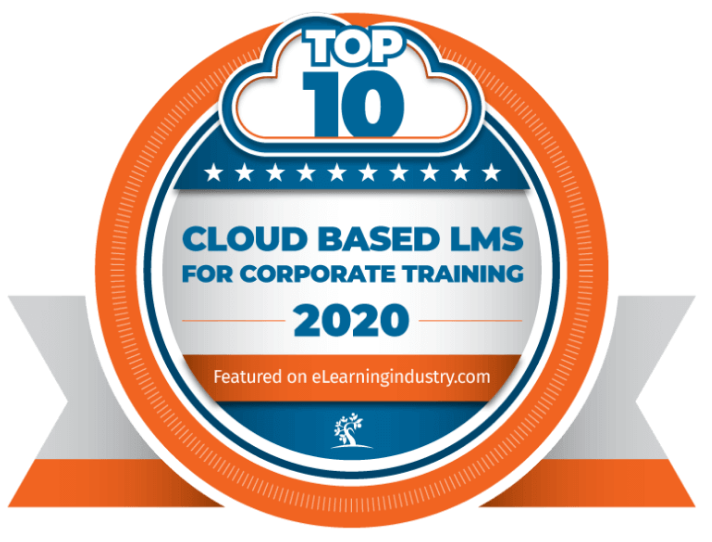April 16, 2025
Learning Management System Training: Enhancing Corporate Learning Outcomes in 2025

With the constantly evolving world of corporate training, Learning Management System (LMS) training has become essential for organizations seeking to increase employee performance, engagement, and adaptability. In 2025, organizations are turning toward LMS platforms to provide learners with scalable, efficient, and personalized learning experiences. This blog will explore learning management system training and how it improves organizational learning outcomes.
The Rise of Learning Management System Training
The corporate world is not unfamiliar with rapid change — technological innovation, shifting market demands and hybrid work models have repeatedly transformed how companies operate. Central to this evolution is the priority of upskilling and reskilling employees at scale. Learning management system training allows you to deliver, manage, and track training programs in a centralized manner, which helps employees stay competitive in today’s dynamic business environment.
As per a report by MarketsandMarkets, the global LMS market is projected to grow from USD 22.1 billion in 2023 to USD 51.9 billion by 2028, at a compound annual growth rate (CAGR) of 18.6%. This growth indicates the rising need for digital learning solutions to cater to corporate training requirements. LMS platforms have evolved beyond simple content delivery tools—they are strategic enablers of measurable business performance.
Why Learning Management System Training Matters in 2025
The training for the learning management system handles the biggest challenges of the corporate world: skill gaps, compliance, and employee retention. Here’s what it’s doing to make a difference:
Closing the Skill Gap Using Personalized Learning
Different industries are transforming and refurbishing the skill sets necessary to thrive quickly. According to the statistics listed in Devlin Peck, the relevant skills in today’s job market have changed by approximately 25% in the last 8 years since 2015, and it is projected that they will shift by 50% of the job market by 2027. LMS training plays a key role by providing customized learning paths that can be tailored according to the individual needs of the employees.
Employers can also take advantage of AI-driven suggestions and adaptive learning, guaranteeing that employees receive the skills they need quickly. For example, a sales team can access targeted modules on negotiation techniques while IT staff can dive into cybersecurity training, all on the same LMS platform. This customization increases learning effectiveness by allowing training tailored to goals and specific roles.
Ensuring Compliance & Standardization
Compliance training is a must in highly regulated industries like healthcare and finance. Learning management system training offers a structured approach to delivering compliance, mandatory training, and tracking completion. According to the Grand View Research report, the LMS Market is expected to grow to USD 70.83 billion by 2030, making LMS a core in various corporate sectors, especially due to compliance training during corporate shocks. Their dashboard reduces risk and assists management in ensuring compliance with both legal and industry standards using built-in reporting tools to monitor progress.
Retaining Employees by Providing Opportunities
Most organizations now state that the top priority for 2025 is retention, meaning they are worried about talent retention. According to various reports, employees would stick with a company that provided learning opportunities. Training with a learning management system nurtures a culture of growth through resources available on demand without affecting the work schedule. When your employees see a clear path ahead of them, they’re much more likely to stay engaged and loyal.
Key Features Driving Learning Management System Training Success
Slated for success, the learning management system training for 2025 spans progressive features that ease the usability curve and lingering impact. Some of the most standout capabilities shaping corporate learning are:
Mobile Learning Accessibility
As there is an increase in the mobile workforce, training needs to be available at any time and in any place. According to the GlobeNewswire report, the mobile learning market is predicted to reach $78.5 billion by 2025, underlining its importance in corporate training. Mobile-optimized LMS platforms support learning on the go, even during a commute, break, or remotely in the field, improving employee engagement and course completion rates.
Microlearning for Busy Schedules
The era of long, exhaustive training sessions is over. Microlearning (short and focused bursts of content) has seen increased popularity for its impact. Most businesses find training more effective with an LMS, partly because microlearning can accommodate busy schedules. In 2025, LMS platforms will focus on bite-sized modules that help maximize retention with minimal disruption.
AI-Powered Personalization
How is artificial intelligence changing the landscape of learning management system training? According to a 2024 HR/L&D Trends Survey report by Blanchard, 30% of L&D teams already use AI tools, and 91% plan to increase usage in 2025. The AI is used to analyze the data that has been captured from the learners and can suggest the most suitable courses, personalize the difficulty levels, identify trends and give feedback in real-time, ensuring that the training is relevant, impactful and effective.
Robust Analytics for Measurable Outcomes
The backbone of modern corporate training is data-driven decision-making. LMS solutions provide built-in dashboards that simplify tracking engagement, completion rates, and performance metrics. According to the statistics published on Research.com, 82% of L&D professionals believe that reporting and analytics are essential to assess training effectiveness. Now, in 2025, these insights enable companies to fine-tune programs and connect learning with business KPIs.
Conclusion
LMS training will adapt and innovate, incorporating new technologies and addressing the evolving demands of the workforce. Outcome-based education (OBE), which gauges success based on performance improvements rather than course completions, will emerge as the predominant corporate focus. Learning management system training in 2025 is not just a trend but a game-changing process in corporate learning results.
Through personalized, accessible, and data-driven training, LMS platforms enable organizations to develop a skilled, engaged, and future-ready workforce. Investing in LMS training is one way businesses respond to the rapidly evolving digital landscape. Connect with us for learning management system training to improve learning experiences.







